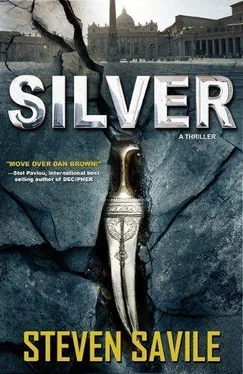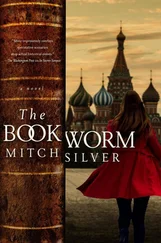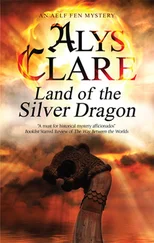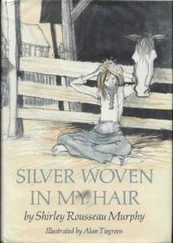Steven Savile - Silver
Здесь есть возможность читать онлайн «Steven Savile - Silver» весь текст электронной книги совершенно бесплатно (целиком полную версию без сокращений). В некоторых случаях можно слушать аудио, скачать через торрент в формате fb2 и присутствует краткое содержание. Жанр: Триллер, на английском языке. Описание произведения, (предисловие) а так же отзывы посетителей доступны на портале библиотеки ЛибКат.
- Название:Silver
- Автор:
- Жанр:
- Год:неизвестен
- ISBN:нет данных
- Рейтинг книги:4 / 5. Голосов: 1
-
Избранное:Добавить в избранное
- Отзывы:
-
Ваша оценка:
- 80
- 1
- 2
- 3
- 4
- 5
Silver: краткое содержание, описание и аннотация
Предлагаем к чтению аннотацию, описание, краткое содержание или предисловие (зависит от того, что написал сам автор книги «Silver»). Если вы не нашли необходимую информацию о книге — напишите в комментариях, мы постараемся отыскать её.
Silver — читать онлайн бесплатно полную книгу (весь текст) целиком
Ниже представлен текст книги, разбитый по страницам. Система сохранения места последней прочитанной страницы, позволяет с удобством читать онлайн бесплатно книгу «Silver», без необходимости каждый раз заново искать на чём Вы остановились. Поставьте закладку, и сможете в любой момент перейти на страницу, на которой закончили чтение.
Интервал:
Закладка:
And if a messiah really was no more divine or god-touched than the one who brings peace and restoration to Israel, well then it couldn’t exactly be claimed that Judas’ kiss brought peace. For almost a century after either Christ or Judas the Romans were still suppressing the names Judaea and Jerusalem. The Jews were still exiles.
Israel was in her blood. She knew its history and its pains as well as any Jew. She had studied the Diaspora and the destruction of the First Temple. She understood the effect the destruction of the Second Temple had on the people. And she understood the hope Simon bar Kokhba had represented. Bar Kokhba had reestablished a Jewish state of Israel seven centuries after the Diaspora began, a state which he ruled as Nasri for three years, bringing the scattered Jews home. Surely, by Schnur’s definition this made Kokhba more effectively a messiah than either Judas or Jesus? For two of those years he fought tooth and naihome. Suinst the Romans to maintain a free Israel, but for three years he gave his people a home, a place. He unified them. Of course after he failed history was unkind-the Jews were scattered, sold into slavery or driven out-and writers with little sympathy to his cause called him Simon bar Kozebah, or Simon, son of The Lie.
That was the way of the world though, was it not? History was written by the winners, not the valiant losers.
She didn’t have the answer.
Two millennia on no one did.
She didn’t think they were meant to.
It came down to faith. That was what all these contradictions came down to in the end. Some people needed to believe that Jesus suffered on the cross to redeem mankind’s sins. They needed to believe that there was a point, that the sacrifice of his earthly body meant something.
These words that so many clung to, so many drew faith from and believed in, could be twisted to say almost anything, and there was no way of knowing one way or the other what the truth was.
In the end it didn’t matter what she believed, what Schnur believed, what any of them believed. However improbable it was, Judas could be Peter, or he could be the Messiah, or a messiah; or he could be both or neither. It didn’t matter. People would find a way to twist the truth into whatever they wanted it to be.
That was the only truth.
And then it hit her, all of the messages, the prophecy of the Popes, the quatrains of Nostradamus, the lectures on the meaning of the word messiah, all of it. It wasn’t about Mabus ushering in the Antichrist, as Nostradamus had said, it was about a new messiah. Mabus was Caspi’s herald. He had said Caspi’s real name was Solomon. One sign of the Messiah was the restoration of Israel as a homeland for the Jews, and another was the rebuilding of the Temple. Who had built the First Temple?
Solomon.
It was Solomon’s Temple.
That was it. Caspi didn’t see himself as the Antichrist at al, he saw himself as the new Messiah. He was the man who was going to bring peace to Israel by creating a Jewish state. She didn’t believe for a minute that his real name was Solomon any more than it was Caspi.
Suddenly it all made sense. She saw how Gavrel Schnur had been recruited by Solomon to his cause. Dassah. It really had all been about his wife. That explained the shrine in his office and the shrine upstairs. She still dominated his life. Dassah Schnur had been murdered because of his vocal support of the Jewish presence on the West Bank and Gaza. He had never changed that position. He lived his entire life to that one fundamental truth. He wanted a homeland for the Jewish settlers. The PLO had murdered his wife because of it, which only made him want it more.
She understood Schnur’s role in her little triptych. He was the idealist who had been offered the one thing he always wanted.
Orla almost pitied him.
If Schnur was the idealist, the other roles were very easily defined. Miles Devere was the opportunist. There was money in death-there always had been-and he had started in Israel, in the very areas Schnur wanted to see a Jewish homeland. He understood the people and the politics and the needs of the region. Who better to help rebuild the infrastructure after the fallout? And, who better to be the grand architect and help build the new monument to Solomon’s messiah? Was that what he had offered Devere, the Last Temple? Surely it would be the most iconographic building of modern times. That would appeal to a man like Devere, even if the money and power didn’t.
The more she thought about it, the more she realized she was underestimating Miles Devere. There was a sinister undertone to his involvement. She recalled the payments into the Swiss bank made by Silverthorn and withdrawn by Caspi or Solomon or whatever his real name was. She remembered Humanity Capital and its modus operandi, how it stimulated unrest and promoted war for financial gain, and the final piece of the puzzle slotted into place. Devere wasn’t some innocent attracted by Solomon, he was the money man. He was financing this war for a New Israel, pumping money into the Shrieks’ coffers, knowing that every dollar spent would in time be reaped five, six, eight, tenfold. It was what he did, he traded in human suffering and disaster.
The irony that Judas’ line was again being exploited for the gain of others didn’t escape her. As far as Devere was concerned it wasn’t about faith at all, it was about money. His own thirty pieces of silver.
She sat back in the chair. It was all there to see.
That left Solomon as the fanatic, the one man who really did believe all of it-the broken faith, the false church, the defamation of Judas-and through it all, the truth of what being a messiah really meant. It was never about being the son of God.
Surely that made him the most dangerous animal of them all, because a man like that couldn’t be reasoned with. Fanatics by definition weren’t open to reason. They didn’t want their eyes open to alternatives. And if they were persuasive, they could draw others closer to their flame of madness; but that wasn’t reason, that was trading on their rigid insanity. And he was insane. Make no bones about it. He could act the part in public-he could be convincing-but underneath the skin he was gone. That made him all the more frightening. A man like that would stop at nothing to see his dream of a new Jerusalem, a new recognized Israeli state for people of the one faith, come to pass. A man like that wouldn’t care if it meant stripping down the faiths of the Catholic Church and all of those other religions that didn’t subscribe to the glory of man. The trappings of religion and heresy were meat and potatoes to a man like that. It played into his messianic complex.
It was like a trail of breadcrumbs had been left for her to follow, and all the way she’d been picking them up and not thinking about what they really meant. But now she’d got it. She knew who they were. She knew how their roles fitted together. Everything made sense.
She called Lethe on the toad’s home phone and told him everything.
Then she waited for Mabus the Herald to come home.
And while she waited the sun went down.
Downstairs, she heard the front door slam.
The toad was home.
She waited.
She heard him breathing heavily as he labored up the large staircase. Gavrel Schnur was a grotesque man. He was gasping hard, seriously out of breath, before he was even halfway through the ascent. Orla was patient. She waited, looking at her ghostly reflection in the glass.
The toad came into his study. He paused momentarily, stari the reflection of the devil in his wife’s blue dress, and then he composed himself. “Did you think seeing you in my wife’s dress, with your hair like that, would stop me from killing you?” he said. It was the last thing he ever said. Orla turned the chair around slowly. She looked at him. The arrogance faded when he saw the Jericho 941 she held low in her lap. She didn’t see the man responsible for torturing her. She didn’t see the man behind the terror attacks on Berlin and Rome and all of those other cities. She saw a fat, frightened man who had never recovered from losing his wife.
Читать дальшеИнтервал:
Закладка:
Похожие книги на «Silver»
Представляем Вашему вниманию похожие книги на «Silver» списком для выбора. Мы отобрали схожую по названию и смыслу литературу в надежде предоставить читателям больше вариантов отыскать новые, интересные, ещё непрочитанные произведения.
Обсуждение, отзывы о книге «Silver» и просто собственные мнения читателей. Оставьте ваши комментарии, напишите, что Вы думаете о произведении, его смысле или главных героях. Укажите что конкретно понравилось, а что нет, и почему Вы так считаете.












